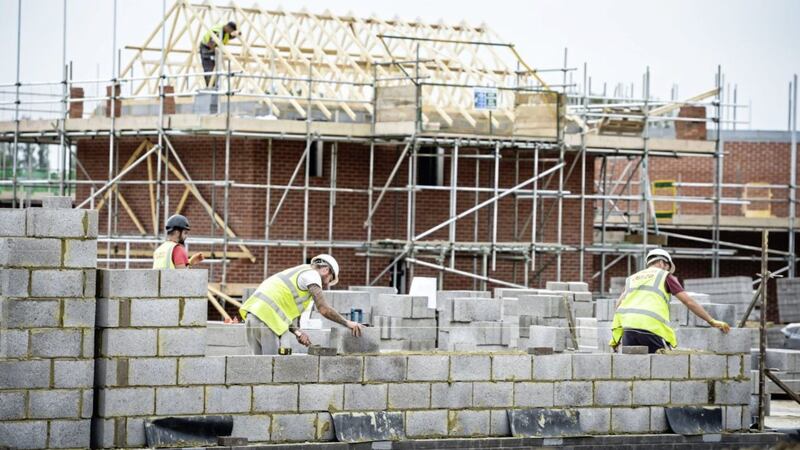A BUILDING body chief insists the north's construction industry may be on the cusp of full-blown recession.
And he claims tradesmen find it “staggering to the point of absurdity” how little political focus there is on fixing things.
The consensus of the 80 Northern Ireland-headquartered companies which responded to the Construction Employers Federation's latest state-of-trade survey (and which between them do nearly £1 billion of business) was that “a market recession is likely, if not already happening”.
“This is unquestionably the most challenging survey of the industry we have conducted since 2012,” CEF managing director John Armstrong said.
“The key impact now being seen across the board is on jobs. The industry is reporting alarming increases in redundancies and projected redundancies since our survey was last conducted in February. Added to this, there is a systemic sustainability risk which is making more and more firms once again look with concern to their future.
“The restoration of the Stormont Executive cannot, alone, solve this crisis. But it being in place is a crucial enabler to having a sustainable pipeline of work, putting in place multi-year budgets which can provide certainty to the market and dealing with the key infrastructure funding challenges which are continuing to hold otherwise vital development back."
Mr Armstrong said the funding challenges are most prevalent within NI Water, with the consistent underfunding of the utility having led to a drastic curtailment in much needed waste water treatment works upgrades and, consequently, a significant slowdown in the number of new homes being built.
“We and our members find it staggering to the point of absurdity how little political focus there is on fixing this issue, given how critical it is to development of all types, not just new homes.
“Fundamentally, the price control process that NI Water are currently engaged in for the period 2021-27 is going to make the situation no better, for as long as their governance and financial model remains as it is, we will continue to face into a funding black hole which will make practically all of our collective infrastructure goals unachievable.
“A restored Executive has to make this their number one infrastructure challenge to resolve – it will not be acceptable to simply kick the can down the road again.”
Among the key findings in the survey were:
• 60 per cent of respondents think the local construction market will worsen in the next 12 months;
• Only 35 per cent of respondents said they were at full capacity (down from 75 per cent when the survey was last conducted in February);
• 35 per cent of respondents believe their workforce will shrink over the next 12 months;
• Three in five companies have put off growth plans;
• 28 per cent of firms have already made redundancies, with a further 48 per cent considering this likely before Christmas;
• One in four firms are in survival mode;
• Four in five firms said labour costs had risen significantly over the last 12 months;
• Some 75 per cent of firms believe that if the UK is to leave the EU on October 31, it must do so with an agreed Withdrawal Agreement and Transition Period (10 per cent neither agree nor disagree while 15 per cent believe the UK should leave without a deal).








